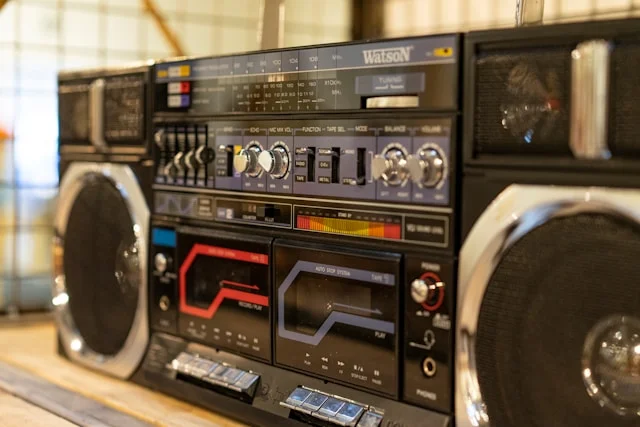Introduction: The Beat of Innovation
Ask yourself this: Do you ever find yourself knee-deep in game development, making sprites and coding mechanics, only to hit a creative wall when it comes to writing the soundtrack for your game? You are not alone. For the majority of indie developers and hobbyists, music composition is a fear-inducing endeavor. Fortunately, we now have an age where technology is turning that barrier into a breakthrough. Say hello to the AI music maker — software that’s revolutionizing our way of dealing with game audio.
Whether you’re a lone game coder typing away in your bedroom or a small team creating the next big hit on a bootstring budget, AI music software is not only handy; it’s potentially game-changing. In this article, we’re going to discuss what this software is, how it works, and why it might become your new best friend.
What Is an AI Music Creator?
An AI music generator is computer software that uses machine learning techniques to generate new music. They browse vast song and sound pattern databases to identify the rules and patterns of composing music. They then generate new songs based on parameters you specify, like genre, mood, tempo, or even length.
Some of the best-known platforms include AIVA, Soundraw, and Amper Music. They all differ in features and interface, yet the idea is the same: you get original, royalty-free music in minutes, specially crafted for your project.
For game devs, it means you can focus even more on game and narrative now, with the knowledge your audio needs are being taken care of easily and at less expense.
Why Game Developers Are Adopting AI-Generated Music
Let’s be realistic. Having a composer employed is ideal, but not everyone has a budget for custom scores. Royalty-free libraries are another option, but with licensing complications or being too generic in the majority of situations. That’s where AI music generators save the day.
To begin with, they’re affordable. All the AI music websites have subscription plans or pay-per-track services that are way more economical than the cost of employing a specialist.
Second, they save time. You can produce the whole soundtrack of your game within an evening’s time—a job that would take weeks or months if you’re doing it yourself.
Also, don’t overlook the control you do have. Need a dark ambient track for your dungeon level? Or a chiptune loop for your retro-themed boss battle? AI tools let you adjust mood, instruments, and pacing to perfectly match your game’s tone.
Real-World Use Cases and Developer Stories
Take the example of Mark, a solo developer from Canada who is making a pixel-RPG. He utilized an AI music generator to produce over 20 unique pieces of music for his game, ranging from serene village settings to intense battle scenes. As he describes it, not only did the tool save him thousands of dollars but also allowed him to experiment with different styles of music without being a musician himself.
And also Sarah, a high school student creating her first mobile game as a hobby. She didn’t have any clue where to begin with audio, but once she discovered an AI music tool, she could just set some options and have some studio-quality background music.
These stories serve as indicators of a critical take-away: accessibility. AI music creators are evening the playing field, making it possible for anyone who possesses a spark of inspiration to produce professional-sounding sound for their games.
Tips for Maximizing AI Music Tools
If you’re thinking of giving these tools a try, some take-aways will assist you in maximizing the output:
- Understand Your Game’s Tone: Determine your game’s atmosphere and ambiance prior to composing tracks. This will help you choose suitable settings.
- Test in Context: Don’t hear the music by itself. Play it with your game scenes to make sure it works.
- Refine and Improve: Most platforms enable you to edit and recreate tracks. Don’t settle for the initial take; try until it feels perfect.
- Layer and Mix: Combine AI-generated tracks with voiceover or sound effects to add depth and professionalism.
- Mind the Loops: Be mindful of loop settings if your track is going to play over and over again. Smooth transitions are essential.
The Future of AI Music in Game Development
We’re just scratching the surface. As AI continues to evolve, so will its ability to understand context, adapt to player choices, and even react dynamically within gameplay. Imagine a soundtrack that changes based on your player’s actions or emotions — AI could make this the norm rather than the exception.
Moreover, we’ll likely see tighter integration with game engines like Unity or GameMaker Studio, making it even easier to implement custom music directly within your development workflow.
Don’t Miss the Beat
AI music creators aren’t here to replace human composers; they’re here to empower developers who otherwise wouldn’t have access to professional-grade audio. They remove barriers, save time, and open up creative possibilities for every level of game maker.
So when you’re polishing up gameplay mechanics or arranging that perfect pixel next time, don’t get worked up over the soundtrack. Leave the rhythm to an AI music generator and you concentrate on building the world to go with it. Fantastic games don’t look and play fantastic — they sound fantastic too.


